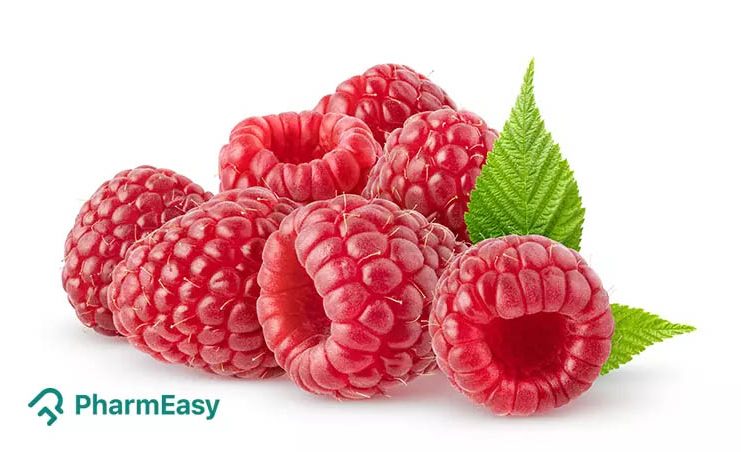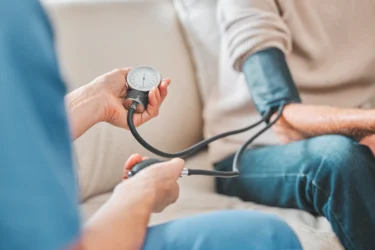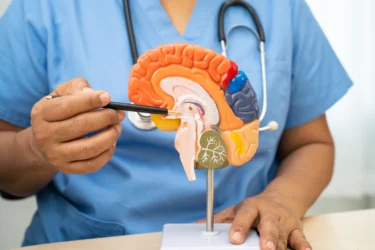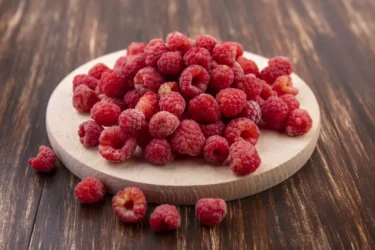Raspberries: Uses, Benefits, Side Effects By Dr. Rajeev Singh
By Dr Rajeev Singh +2 more

Get,

to manage your symptom
Get your,


4 Cr+ families
benefitted

OTP sent to 9988776655



You’ve successfully subscribed to receive
doctor-approved tips on
Whatsapp

Get ready to feel your best.

Hi There,
Download the PharmEasy App now!!


Register to Avail the Offer
Send OTPBy continuing, you agree with our Privacy Policy and Terms and Conditions

Hi There,
Sign up on PharmEasy now!!
Trusted by 4 crore+ families

OTP sent to 9988776655



You have unlocked 25% off on medicines




Code: NU25
By Dr Rajeev Singh +2 more
Table of Contents
Most of us have relished raspberry ice cream on a hot sunny day. Isn’t it astonishing to know that raspberries have several health benefits? It is believed that the Romans first cultivated raspberries in the fourth century. Raspberries are considered to be the first collected by the people of Troy from the foothills of Mt. Ida. This fruit is native to North Asia and Eastern Europe. Raspberry belongs to the family Rosaceae, and its scientific name is Rubus Idaeus, which means ‘bramble bush of Ida’. It was thought that the Olympic Gods were looking for berries on Mt. Ida1. Raspberry are a host of several nutrients. Let us look at some health benefits of raspberries.

Raspberries may contain bioactive compounds like polyphenols, flavanols, gallotannins, hydroxycinnamic acids and many more1. Additionally, it may also contain the following nutrients:
Nutritional value of raspberry (raw)2
Based on studies I came across, eating raspberries might result in changes in genes and blood substances related to the immune system and metabolism. These findings suggest that regularly consuming raspberries may affect our immune and metabolic pathways that might be beneficial for our health14.
Dr. Siddharth Gupta, B.A.M.S, M.D (Ayu)
Some of the properties of raspberries are:
Let me tell you an interesting fact about raspberries! They may provide a noteworthy amount of vitamin C, that offers multiple benefits for our health. One notable benefit might be its ability to support healthy gums and better blood formation15.
Dr. Rajeev Singh, BAMS
There are several raspberry fruit benefits. Some of the potential raspberry fruit uses are:

Raspberries may possess antioxidant activity, which may be beneficial for heart diseases. A study1,3 by Mullen et al. in 2002 showed that raspberries might be an antioxidant because of bioactive compounds like ellagitannins, anthocyanins and vitamin C. Anthocyanins may improve the function of endothelial cells (cells that regulate blood flow in the heart). Additionally, raspberries may also regulate blood pressure. However, more studies are required to check if raspberries may protect the heart. Therefore, you must consult your doctor if you have any symptoms of heart disease.

A study1,4 by Jayaprakasam et al. in 2005 showed that the bioactive compound anthocyanins in raspberries might stimulate insulin secretion and reduce the risk of type 2 diabetes. Another bioactive compound, cyanidin-3-glucoside, may reduce the blood sugar levels. However, more research is required to check if raspberries may be beneficial for diabetes. You must check your blood sugar levels regularly and consult your doctor in case of abnormal blood sugar levels.

A study1,5 by Park et al. in 2010 showed that ketones in raspberry might benefit weight loss. The ketones may break down the lipids or the fats (lipolysis). It may also cause fatty acid oxidation, which may help with weight loss. It may also regulate the secretion of adiponectin, a hormone that breaks down fatty acids. However, more research is required to check if raspberry may benefit weight management. You must consult your nutritionist before making any changes in your diet.

A study1,6 by Bowen-Forbes et al. in 2010 showed that raspberries might inhibit cancer cell growth due to bioactive compounds like anthocyanins. Polyphenols in raspberries may reduce the risk of colon and intestine cancer. Ellagitannins and anthocyanins may reduce the risk of cancer due to their antioxidant property. They may deactivate the harmful free radicals (molecules that harm the body). However, more research is yet to be done to check if raspberries may be used for cancer. Cancer is a serious disease; therefore, you must take an informed consultation and proper medications as advised instead of self-medicating.

Alzheimer’s disease may be characterised by disturbed insulin functioning and increased oxidative stress and inflammation. Raspberries may contain bioactive compounds like polyphenols which may regulate insulin levels, reduce inflammation and reduce oxidative stress. These three factors may cause Alzheimer’s disease. In addition, raspberry fruit may decrease deposition of amyloid-β protein, which may be beneficial in reducing the risk of Alzheimer’s disease1,7. However, more studies are required to check whether raspberry may benefit Alzheimer’s disease. Therefore, you must consult your doctor if you have any symptoms of Alzheimer’s disease and never self-medicate.

A study8 by Wang et al. in 2018 showed that compounds like cyanidin and ellagic acid might help to protect the skin from UV rays. It may reduce skin cell death, thickening, wrinkles, dryness, tanning and redness of the skin. However, more studies are required to check if there are raspberries benefits for skin. You must consult your doctor if you see any abnormality in your skin.

A study9 by Ash et al. in 2011 showed that α-linoleic acid in raspberry might be beneficial to lower triglyceride levels in the body. A condition called dyslipidemia is an excess of triglycerides, which are harmful fats present in the body. Therefore, raspberries may also be beneficial for dyslipidemia. However, more studies are required to check if raspberries can reduce the levels of triglycerides in the body.

A study10 by Harada et al. in 2007 showed that raspberry ketones might be beneficial for hair growth in alopecia patients. The raspberry ketones may increase blood flow in the scalp and help in hair growth. However, more studies are yet to be done to check the raspberries benefits for hair Therefore, you must get proper treatment if you have conditions that cause hair loss like alopecia instead of self-medicating.
Though studies show the benefits of raspberries in various conditions, these are insufficient, and there is a need for further studies to establish the true extent of the benefits of raspberries on human health.
In light of what I have observed, raspberries are a great source of dietary fibre. This might play a crucial role in promoting healthy digestion and managing constipation15.
Dr. Smita Barode, BAMS, M.S.
Raspberry can be consumed in the following ways:
You must consult a qualified doctor before taking raspberries in large quantities or any herbal supplements. Do not discontinue or replace an ongoing treatment of modern medicine with an ayurvedic/herbal preparation without consulting a qualified doctor.
Side effects of raspberry consumption may be seen if you eat in excess or are allergic to it. An article with a case report of 52-year-old woman suggested that consumption of raspberry may cause the following side effects:
You must immediately consult your doctor if you experience any side effects after consuming raspberries.
Also Read: Brahmi Grita: Uses, Benefits, Side Effects, and more!
The following precautions must be taken before consuming raspberries:
It is advised to consult your doctor before consuming raspberries if you have any pre-existing diseases.
Also Read: Passion Fruit (Krishnabija): Uses, Benefits, Side Effects by Dr. Smita Barode
Raspberries may interact with the following drugs:
You must consult your doctor before consuming raspberries if you are undergoing medical treatment.
Also Read: Dried Cranberries: Uses, Benefits, Side Effects By Dr. Rajeev Singh
The benefits of raspberries may be seen in its possible role in several diseases like cancer, diabetes, heart disease and Alzheimer’s disease. It may lower bad cholesterol levels. Raspberry fruit may be used to manage weight. Additionally, it may be beneficial for skin and hair growth3,10. However, you must consult your doctor if you have symptoms of any diseases instead of self-medicating.
Yes, raspberries may be beneficial for weight loss. A bioactive compound, anthocyanin, present in the fruit may be responsible for weight loss1.
It may cause Itching of palms, shortness of breath (dyspnea), intense flushing on the skin (increased blood flow in the skin), and jitters. In addition, it may increase blood pressure and heart rate11,12. Side effects of raspberry may be seen if you eat in excess or are allergic to it. An article with a case report of 52-year-old women suggested that consumption of raspberry may cause these side effects. You must immediately consult your doctor if you experience any side effects after consuming raspberries.
Pregnant and breastfeeding mothers shall be cautious before consuming raspberries12. You must consult your doctor before consuming raspberries.
Raspberries may interact with stimulants like amphetamines. This interaction may increase blood pressure and heart rate. It may also interact with warfarin (a drug used to prevent blood clots). Raspberries may interact with diabetic drugs like glimepiride and metformin12,13. You must consult your doctor before consuming raspberry if you are undergoing medical treatment.
Disclaimer: The information provided here is for educational/awareness purposes only and is not intended to be a substitute for medical treatment by a healthcare professional and should not be relied upon to diagnose or treat any medical condition. The reader should consult a registered medical practitioner to determine the appropriateness of the information and before consuming any medication. PharmEasy does not provide any guarantee or warranty (express or implied) regarding the accuracy, adequacy, completeness, legality, reliability or usefulness of the information; and disclaims any liability arising thereof.
Links and product recommendations in the information provided here are advertisements of third-party products available on the website. PharmEasy does not make any representation on the accuracy or suitability of such products/services. Advertisements do not influence the editorial decisions or content. The information in this blog is subject to change without notice. The authors and administrators reserve the right to modify, add, or remove content without notification. It is your responsibility to review this disclaimer regularly for any changes.
Comments

Leave your comment...
You may also like
Comments